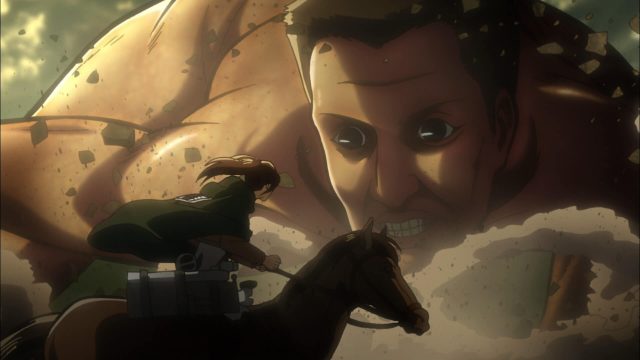The FAR bets on all the competitions. Not just the Oscars, but box office returns backed by criminal money, contests of routine versus chaos, the lives of barnyard animals, the hearts and minds of anime fans. You don’t like it? Well, that’s…
Thanks to scb0212, Miller, and Devourer Skulking Croc-ford for contributing this week, always bet on them to show. Send articles throughout the next week to ploughmanplods [at] gmail, post articles from the past week below for discussion, and Have a Happy Friday!
Scout Tafoya memorializes Monte Hellman, who died earlier this week, and his existential but unpretentious vision:
[Hellman] started a theater company and who but Roger Corman came on board as a producer for a special production of Samuel Beckett’s Waiting for Godot, which Hellman staged as a western and of which a young Jack Nicholson attended a performance. This idea would haunt the rest of his career like a specter. The grandeur of the west, the rigor of genre, the novelty of wedding arch European existentialism to an American outlook; these would define his best work as a director later in his life.
C.M. Crockford, known in these parts as the pensive expression of Roy Scheider, talks Solute favorite Paterson, neurodivirgence, and the poetry of routine for Emily VanDerWerff’s Episodes newsletter:
[note: link may require subscription to read – there is a free subscriber level that allows you to read the piece, though the FAR will never dissuade someone from being a paying if they can swing it]Being neurodiverse means there’s sometimes a struggle in my mind between order and disorder. A good chunk of the time, disorder wins, and I’d be lying if I said I always hate the feeling. At times watching Paterson, I am the steady and predictable poet; at others, I am the flighty, chaotic artist. But I agree with Jarmusch that these two sides of artistry complement and inspire each other. Is it any coincidence that in the first scene, Laura describes a dream where she and Paterson have twins, symbols of dualism and opposite forces, and for the rest of the film, Paterson sees identical twins on his bus routes and on walks?
I suppose we should put something about the Oscars this Sunday so… how about K. Austin Collins’ predictions and shade from Rolling Stone:
I’m not crazy about Pieces of a Woman as a film; I don’t think it’s up to the task of its subject matter. But Kirby throws her full body into the that 24-minute-long home birth scene, and it’s hard not to be overwhelmed by the effort, even as the movie undermines her by pivoting too obviously around Big Moments and stretching the rest of her personality so thin she’s practically rendered into a psychological Elastigirl. I would — sincerely — love to see Kirby get a future Oscar nod for a role akin to her turn in Mission Impossible: Fallout; few of his co-stars have knocked Tom Cruise down to size so handily, and Dramatic Acting is not the only valid form of acting. Cruise-crunching counts, too. (Actors know this. The actors branch determines the acting nominees. Nothing prevents this from happening but their taste. But oh, their taste.)
Nicholas Rapold interviews Gunda filmmaker Victor Kossakovsky about telling stories about animals instead of people:
We cannot understand that animal voices have different words. Even “moo” we think is just “moo.” I count 300 different moos. If you record a moo and put it in a computer, then you see it’s not just a moo, it’s different every time. In every situation, you can predict which moo she will use. We think they are stupid. Not at all. They have language.
I will be arrogant right now. I will say it like this: good or bad filmmakers do films about what they understand. An artist makes films about what he doesn’t understand. And I want to make a movie about what I don’t know. For me, this is discovery.
At MUBI, Sean Price Williams talks with Abel Ferrara about shooting porn and exploitation with Mob money:
So now we had to go make an X-rated film: we just had our girlfriends and we’re gonna do it as an artistic project. We need $25,000 to make this movie, right? So my father introduces me to guys who’re in the business of making millions. This one wise guy says “I’m not putting up the money, tell your father to put up the money, and we’ll make sure he gets it back.” Because it was like… gangster shit. Like, the guy wasn’t going to put up the money, but he would “make sure the guy got it back.”
And at Vice, Gita Jackson breaks down the unresolved questions and discussions surrounding the mega-popular manga and anime adaptation Attack on Titan as its finale draws near:
For a long time, anime fans had no way of knowing what their favorite writers and artists even looked like, let alone what they thought about the world. Because anime was, until recently, a niche culture, and one that has occasionally been unfairly maligned for being pornographic and violent, anime fans in general have avoided talking about the politics of their favorite shows. “Some Anglophone and American anime fans say that politics in anime is too foreign to comprehend, I think that’s a minority position. A lot more people these days seem to have some accurate knowledge about sociocultural politics in Japan, but in my experience they’re equally likely to combine a dollop of knowledge about current circumstances in Japan with their own preconceptions about Japan and Japanese society,” Andrea Horbinski, an independent scholar with a doctorate in new media studies and history, told Motherboard.

